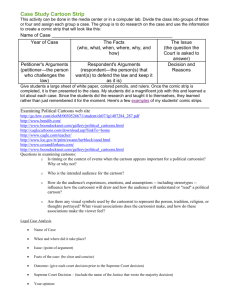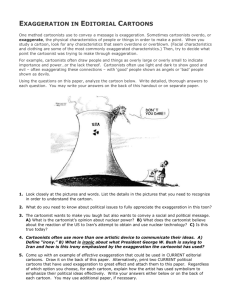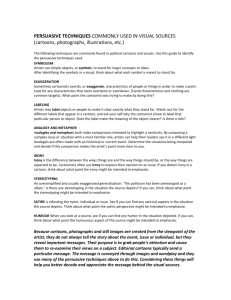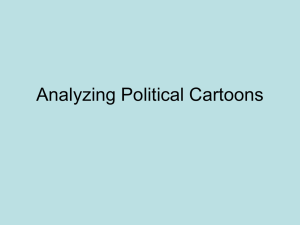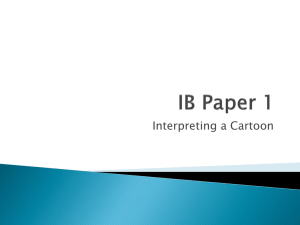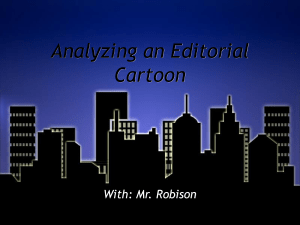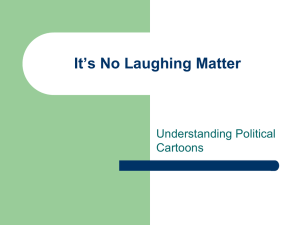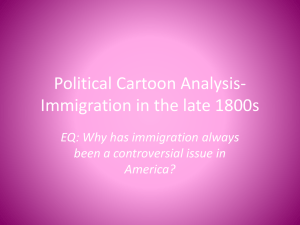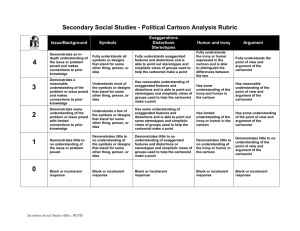Symbols, Exaggeration, Irony, Labeling and Captioning, Analogy
advertisement
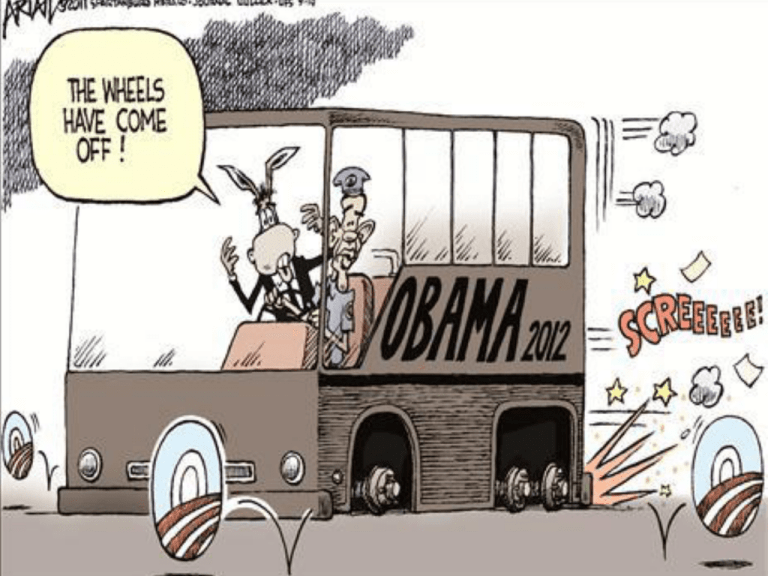
Analyzing Political Cartoons At the end of this lesson students will be able to 1. Identify five elements of a political cartoon. Symbols Exaggeration Irony Captioning and Labeling Analogy 2. Identify the methods and techniques used by the cartoonist to convey a message. Symbolism-Using an object to stand for an idea Captioning and Labels-Used for clarity and emphasis Analogy-a comparison between two unlike things that share some characteristics Irony-the difference between the way things are and the way things should be or the way things are expected to be Exaggeration-overstating or magnifying a problem or a physical feature or habit Analyzing Political Cartoons First we will look at some modern day cartoons. Try to see if you can tell what the cartoonist is trying to say. How does the cartoonist use symbolism, exaggeration, irony labeling, and analogy? What methods and techniques did the cartoonist use? Analyzing Political Cartoons Now lets look at some from through out history. See if you can determine what the cartoonist is saying with the cartoon. Look for the five elements of a political cartoon. Symbols, Exaggeration, Irony, Labeling and Captioning, Analogy Get out your Political cartoon analysis worksheet Stupid Indians Do You Think Wovoka REALLY Meant It? How can anyone be so dumb? Dance! Dance! No bullets can penetrate our ghost shirts! Wovoka said. That will be one dead Indian! No Risk Dancing Area No Risk Dancing Area Ghost Shirt I TRIED to tell them! Ghost Shirt Now You Try Symbolism-Using an object to stand for an idea Captioning and Labels-Used for clarity and emphasis Analogy-a comparison between two unlike things that share some characteristics Irony-the difference between the way things are and the way things should be or the way things are expected to be Exaggeration-overstating or magnifying a problem or a physical feature or habit
